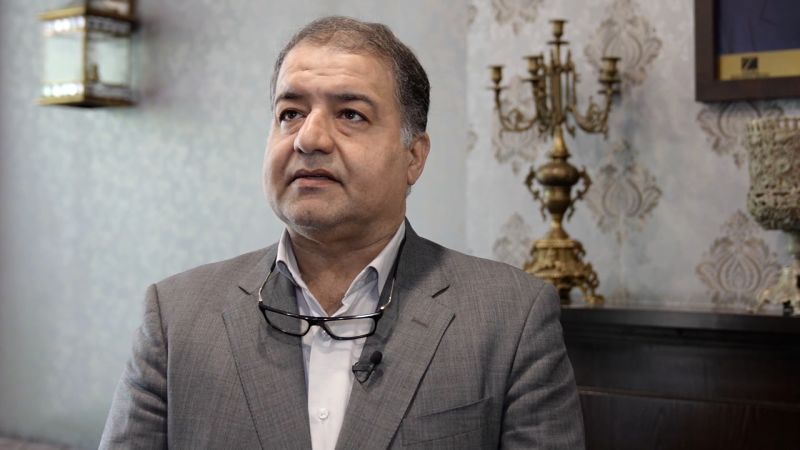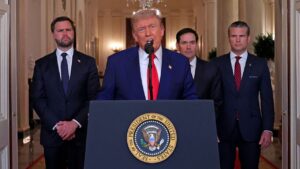
TEHRAN, Iran – Diplomacy with Iran could resume swiftly if the United States intervenes, according to an Iranian official.
Majid Farahani, an official with the Iranian presidency, stated on Friday that diplomatic talks with Iran could “easily” be restarted should U.S. President Donald Trump instruct Israel to halt its strikes on Iran. Farahani emphasized Iran’s commitment to civilian dialogue, asserting that the means of communication, whether direct or indirect, are inconsequential.
“President Trump can easily stop the war by only one telephone call to the Israelis,” Farahani reiterated, underscoring Iran’s stance that negotiations are untenable amid ongoing Israeli military actions.
Immediate Impact
Farahani noted that while Iran would not entertain the cessation of its nuclear enrichment activities—insisting they are for peaceful purposes—concessions could be considered. “Maybe it can be lower but we don’t stop it,” he remarked, highlighting a potential area for negotiation.
This development comes as European powers have joined the U.S. and Israel in demanding a ban on enrichment, with France’s foreign ministry spokesperson Christophe Lemoine declaring a “clear position on zero enrichment” on Friday.
Key Details Emerge
Iran maintains that its uranium enrichment is for peaceful purposes, despite producing significant quantities of near-weapons-grade material. President Trump’s decision to initiate a two-week negotiating window before potentially striking Iran offers a slim chance for a peace deal between Iran and Israel.
Geneva Talks
Talks are underway in Geneva involving foreign ministers from Iran, Britain, France, and Germany, as well as the European Union’s foreign policy chief. This marks the first confirmed face-to-face meeting of its kind since the conflict’s inception.
What Comes Next
Amidst escalating tensions, the Trump administration has opened the possibility of averting military action. However, within Trump’s camp, opinions are divided on whether to pursue direct strikes against Iran.
“If America gets involved in the war, there are so many options and all of those options are on the table,” Farahani warned.
Protests in Tehran
Pro-government protests erupted on Friday in Tehran, with demonstrators expressing anger towards both Israel and the United States. A CNN team observed massive crowds waving Iranian, Hezbollah, and Palestinian flags, with some burning U.S. and Israeli flags.
“Trump, you are threatening my leader,” one protester told CNN, “Don’t you know that my nation believes death is sweeter than honey?”
Background Context
The recent developments build on longstanding tensions between Iran and Israel, exacerbated by the U.S.’s firm stance on nuclear enrichment. The timing is particularly significant as it follows a series of aggressive messages from the Trump administration, which now appear to be opening a narrow path for diplomacy.
Expert Analysis
According to sources familiar with the negotiations, the move represents a significant shift from previous U.S. policy, which had largely supported Israel’s military actions. Experts suggest that a diplomatic resolution could stabilize the region, but caution that the window for negotiation is limited and contingent on immediate actions by all parties involved.
As the situation unfolds, the world watches closely to see if diplomacy can prevail or if military confrontation is inevitable. The coming days will be crucial in determining the future of U.S.-Iran relations and the broader geopolitical landscape in the Middle East.







